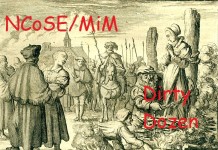
From an ALA Announcement:
Author Scott Turow and US Court of Appeals Judge Richard Posner discussed the future of authors, books, and libraries at the Newberry Library in Chicago February 22 at the first of the “Conversations at the Newberry” series created by National Public Radio’s Chicago affiliate WBEZ. Turow, currently in his second term as president of the Author’s Guild, spoke passionately about the rights of authors and the guild’s fight against the Google Books Project. He also advocated for the future of libraries.
“What I love about libraries is the access to books. This world of knowledge is available for nothing,” Turow said. If information is only available on the internet, “what happens to the young, the poor, and the elderly? It would be unfortunate if this attempt to broaden is excluding. It shouldn’t be the case that the world of knowledge is closed to those who can’t afford it.”
[Clip]
“On the topic of ebooks, Turow talked about how he enjoys reading ebooks during airplane trips because he can have several titles accessible in a compact format. Ebooks have also provided advantages for publishers, he said, such as reduced costs for printing, warehousing, and shipping. But for authors, the ebook age has brought perils.”
“Book piracy is becoming rampant,” Turow said. For a bestselling author who has the weight of a publisher behind him or her to enforce copyright, it is not as damaging as it is to those who sell on a smaller scale where margins are already thin.”
“Posner, whose current research includes intellectual property, called copyright “a tremendous blockage of access. Copyright is a terrible briar patch for authors, and a bonanza for lawyers. I know there is a downside, and I understand Scott’s defense of the Author’s Guild,” Posner said. But, he added, “Too much copyright protection hurts the author” by stifling free creative expression.”
The program was recorded on February 22, 2012 and runs 70 minutes. The program was recorded at The Newberry Library in Chicago.
Stream/Download via WBEZ (Chicago)
[Via INFOdocket]


































Mr. Turow is going to be in hot water with his masters at the Big Six for admitting the obvious fact that ebooks have a lower production cost than treebooks and for supporting libraries, both of which fly in the face of the standard industry line.
Happily he’s still completely out of touch with reality on most other counts, so they may be lenient.
The Big Six readily acknowledge that e-books have lower production costs–that’s why their agency plan e-book prices are lower than print prices and their e-book royalty rates to authors are higher than print rates. And, look, you can find books from any Big Six publisher in probably any library in the country. You can support libraries without supporting their wish to have books in electronic format. It’s not out of touch with reality as it exists in 2012 to believe that libraries best serve their communities by having books in a physical form that anyone can use, regardless of their ability to buy an e-book reader. Although it may be out of touch with some visions of the future . . . .
“Ebooks have also provided advantages for publishers, he said, such as reduced costs for printing, warehousing, and shipping.”
So, Mr. Turow, why do the publishers insist on higher prices for ebooks then?
Oopsss….. :O